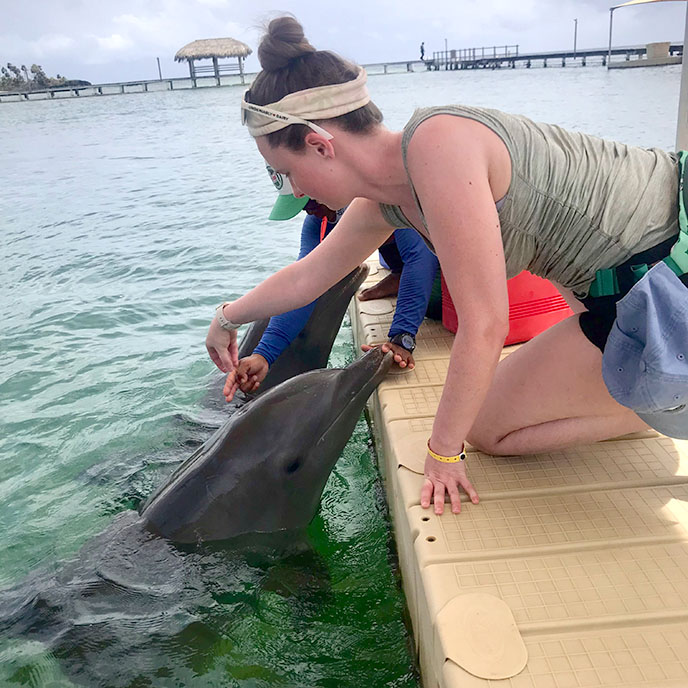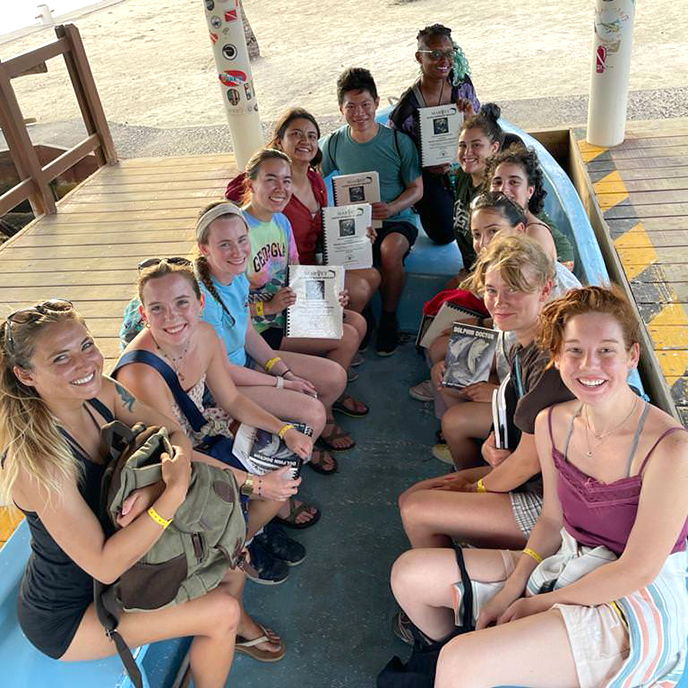

Izabelle Krupa has a deep love of the ocean.
So much so, that before entering veterinary school at Iowa State University, she considered a career in marine biology.
“I went to undergraduate school in Hawaii where I learned a lot about the marine ecosystems and marine mammals,” Krupa said. “While there, I spent some time volunteering at a marine mammal stranding lab where I helped with necropsies of stranded whales.”
That love of the ocean and desire to work with marine mammals hasn’t subsided with her veterinary studies in Iowa. After graduating she hopes to make a career in aquatic medicine and help in stranding responses.
But studying veterinary medicine in Iowa requires Krupa and other students with a similar interest to reach out for other opportunities. One such opportunity Krupa did this past summer was an international experience in Honduras.
Krupa spent a week at a workshop focused on marine veterinary medicine hosted by MARVET at the Roatan Institute for Marine Sciences. She joined a group of other veterinary students and veterinarians from around the world to learn about the health and care of bottlenose dolphins.
The workshop featured lectures on marine mammal anatomy, physiology and thermoregulation as well as discussions on water quality, stranding response and GIS mapping.
“I was really interested in participating in an international program because it allowed me to get a unique experience I wouldn’t have gotten in the U.S.,” Krupa said. “I learned so much from just this one week, from both the clinical aspect and the broad career paths that are available to me in aquatic medicine.”
While Krupa’s mornings were spent with lectures, the afternoons are very hands-on.
“During these wet labs, we learned different aspects of dolphin physical exams including ultrasound, cytology and hematology,” she said.
All told, 18 bottlenose dolphins call Bailey’s Key home. Krupa says she was able to complete a full ultrasound on a dolphin and take chuff samples of the blowhole. All was done in a low stress, non-invasive manner.
“These dolphins have been trained for education and research purposes,” Krupa said. “What I found interesting, was their enclosures were actually in the ocean, so they were in an authentic habitat.
“I had expected to perform every part of the physical exam with the dolphins out of the water, but we actually did these in the water.”
Krupa’s Honduras international experience reinforced her desire to have a career in aquatic medicine after graduation.
“I was fortunate to meet veterinarians, marine veterinarians and vet students from around the world who are interested in, or have already established careers in aquatic medicine,” she said.
Learn more about the College of Veterinary Medicine's international opportunities.
October 2023
